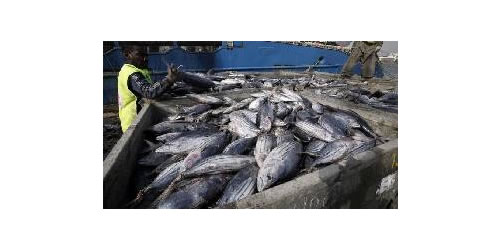Largest fish processing company in Ghana to relocate if… – PFC

Leading tuna producer, Pioneer Food Cannery (PFC), has served notice of relocating to another country if Ghana does not sign the Economic Partnership Agreement (EPA) with the European Union (EU) by October 1, 2016.
Ghana has until October 1, 2016, to sign the EPA with the EU to prevent the union from imposing over 15 percent tariff increment on various products that are exported to the zone.
Speaking to Bernard Avle on the Citi Breakfast show, the Group CEO of Thai Union EUC Foods, Mrs. Elizabeth Florio, disclosed that Pioneer Food Cannery which operates under the group produces 20 percent of canned tuna supply to Europe, a situation that cannot be overlooked if the tariff is imposed.
“Ghana is becoming less competitive in terms of futility than some other countries close to Ghana. A lot of countries that are not in the tuna business are now going in to do tuna business”, she said, warning that the structural competitiveness of the tuna business will mean that the company must relocate to keep making a margin.
She stressed that the group’s business model depends on having a tariff free quota condition to the EU to help it compete with other giant countries from the Asian region.
To avert any relocation, Mrs. Florio stated that the Group sent her to Ghana to address the issue with some concerned state authorities to enable Pioneer Food Cannery continue its operation in Ghana.
Impact of high utility tariffs
Also speaking on the show, the head of Pioneer Business for Ghana, Mr. Nicole J. Elizabeth, bemoaned the high cost of utility prices on the company’s operations.
According to him, the company is already sinking under high production cost as a result of the frequent power outages and the increase in utility tariffs.
“We are on the grade, we have backup generators and we consume a lot due to the preservation of the fish. Over the last three years, the energy increase in Ghana on average for us have been over 300 percent”, he said.
He stated that the company is paying over 800,000 cedis for electricity per month while water bill hits over 400,000 cedis per month.
“This is huge, we are talking about 1.2 million Ghana cedis in utility bills a month”, he said, blaming the surge on astronomical increases in utility tariffs.
He stated that the company is planning to meet the Public Utility Regulatory Commission (PURC) to discuss possible ways of mitigating the effects of the high utility on their production.
Cedi impact
According to Mr. Elizabeth, the inconsistencies in the local currency for the past three years, has had a devastating effect on the company’s production.
He stated that since the company exports majority of its products for foreign currencies, inconsistencies in the cedi’s performance means that investors cannot make clear forecast to inject funds into its operations.
The EPA
Ghana in December 2007 initialled an interim EPA to avoid a similar tariff action after the preferential trade agreement enjoyed under a previous treaty, named the Cotonou Accord expired in the year 2000.
Since 2000, African, Caribbean and Pacific countries (ACP) have been working with the EU Commission to sign a non-preferential bilateral trade treaty in which either side would offer both tariffs and concession, but in a regime that favours the ACP countries more.
ECOWAS member states including Ghana have been working since 2000 to sign the pact as a sub-region with the EU.
Trade volume between EU and Ghana
Trade volume between the EU and Ghana as at 2013, was estimated at 11.2 billion euros from 1.9 billion euros in 2000.
Currently, the EU is Ghana’s biggest trading partner as trade volumes is further estimated to surge.
Trade analysts and financial experts have expressed worry over government’s lack of clear direction on the matter, as income from EU is crucial for Ghana’s investment and economic expansion.
In all, Ghana’s delay in signing a substantive Economic Partnership Agreement (EPA) with the European Union means a 20.5 percent tariff increment looms.
Government has until October 1 this year, to sign unto the agreement even though its intentions are unclear, sending mixed signals to exporters who fear higher taxes would be slapped on their produce making it less competitive.
Some of the producers and exporters who have expressed worry include; agro processing companies such as Golden Exotics, HPW Fresh and Dry, Blue Skies, Barry Callebaut and other cocoa processing companies producing for the EU market.
Source: citifmonline.com



